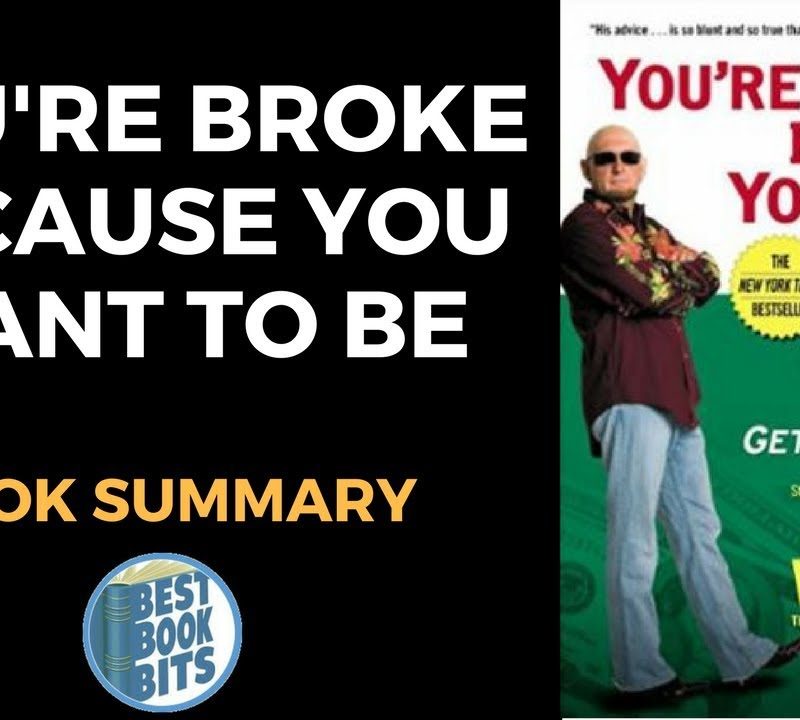★DOWNLOAD THIS FREE PDF SUMMARY HERE
? MY FREE BOOK TO LIVING YOUR DREAM LIFE”
? SPONSOR BESTBOOKBITS BY USING PATREON
? SUPPORT BESTBOOKBITS BY CLICKING THE LINKS BELOW
- 150 PDF Summaries
- Coaching Program
- Subscribe to My Channel
- Website
- Spotify
- Book Club
- Mailing List
- Meet the Millionaire Next Door
“These people cannot be millionaires! They don’t look like millionaires, they don’t dress like millionaires, they don’t eat like millionaires, they don’t act like millionaires—they don’t even have millionaire names. Where are the millionaires who look like millionaires?”
We do not define wealthy, affluent, or rich in terms of material possessions. Conversely, those people whom we define as being wealthy get much more pleasure from owning substantial amounts of appreciable assets than from displaying a high-consumption lifestyle.
In this book we define the threshold level of being wealthy as having a net worth of $1 million or more. Based on this definition, only 3.5 million (3.5 percent) of the 100 million households in America are considered wealthy. About 95 percent of millionaires in America have a net worth of between $1 million and $10 million. Much of the discussion in this book centers on this segment of the population. Why the focus on this group? Because this level of wealth can be attained in one generation. It can be attained by many Americans.
- Frugal Frugal Frugal
Why are so few people in America affluent? Even most households with six-figure annual incomes are not affluent. They believe in spending tomorrow’s cash today. They are debt-prone and are on earn-and-consume treadmills. To many of them, those who do not display abundant material possessions are not successful.
Why would someone who is a millionaire need to budget? Our answer is always the same:
They became millionaires by budgeting and controlling expenses, and they maintain their affluent status the same way.
The typical millionaire in our surveys has a total annual realized income of less than 7 percent of his wealth. This means that less than 7 percent of his wealth is subject to some form of income tax.
To build wealth, minimize your realized (taxable) income and maximize your unrealized income (wealth/capital appreciation without a cash flow).
Even many high-income-producing households are asset poor. One reason is that they maximize their realized incomes, often to support high-consumption lifestyles. Such people might wish to ask themselves a simple question: Could I live on the equivalent of 6.7 percent of my wealth? It takes much discipline to become affluent. We have interviewed many people worth $2 or $3 million who have total realized annual household incomes of less than $80,000.
- Time, Energy, and Money
Efficiency is one of the most important components of wealth accumulation. Simply: People who become wealthy allocate their time, energy, and money in ways consistent with enhancing their net worth.
Do you know exactly how much your family spent last year for each and every category of product and service? Without such knowledge, it’s difficult to control your spending. If you can’t control your spending, you’re unlikely to accumulate prodigious amounts of wealth. A good start is to keep an accurate record of each and every expenditure that your family makes each month. Or ask your accountant to help you set up a system for tabulating and categorizing these expenditures. Then work with them to develop a budget. The goal is to enable you to set aside for investing purposes at least 15 percent of your pretax income each year.
Planning is typically found to be a strong habit among people who have a demonstrated propensity to accumulate wealth. Planning and wealth accumulation are significant correlates even among investors with modest incomes. In our survey of 854 middle-income respondents, for example, a strong positive correlation was found between investment planning and wealth accumulation.
- You Aren’t What You Drive
“If your goal is to become financially secure, you’ll likely attain it…. But if your motive is to make money to spend money on the good life,… you’re never gonna make it.”
How do millionaires go about acquiring motor vehicles? About 81 percent purchase their vehicles. The balance lease. Only 23.5 percent of millionaires own new cars. Most have not purchased a car in the last two years. In fact, 25.2 percent have not purchased a motor vehicle in four or more years.
One can learn a great deal about affluent people by analyzing their vehicle-buying habits. For instance, note that most millionaires are dealer shoppers as opposed to dealer loyalists. Most vehicle buyers are not wealthy. Thus, one might logically expect them to spend more time and energy shopping for the best deal. Our research shows the opposite. Those who are not wealthy are less likely to shop, haggle, and negotiate than those who are millionaires. Car-buying behavior does indeed help explain why some people are wealthy while most are not and never will be.
Being frugal is a major reason members of the used vehicle-prone group are wealthy. Being frugal provides them with a dollar base to invest.
- Economic Outpatient Care
Economic outpatient care refers to the substantial economic gifts and “acts of kindness” some parents give their adult children and grandchildren.
These sons and daughters of the affluent are high-volume consumers of status products and services, from their traditional colonial homes in upscale suburbs to their imported luxury motor vehicles. From their country club affiliations to the private schools they select for their children, they are living proof of one simple rule regarding EOC: It is much easier to spend other people’s money than dollars that are self-generated.
Gift receivers frequently are underachievers in generating income. All too often the income of the gift receiver does not increase at the same rate as his consumption.
- Giving precipitates more consumption than saving and investing.
- Gift receivers in general never fully distinguish between their wealth and the wealth of their gift-giving parents.
- Gift receivers are significantly more dependent on credit than are nonreceivers.
- Receivers of gifts invest much less money than do nonreceivers.
“Whatever your income, always live below your means.”
What can you give your children to enhance the probability that they will become economically productive adults? In addition to an education, create an environment that honors independent thoughts and deeds, cherishes individual achievements, and rewards responsibility and leadership.
- Affirmative Action, Family Style
Many parents say there is nothing wrong with providing outpatient care. This is true, perhaps, if the recipients are already well disciplined and have demonstrated that they are able to generate a decent living without other people’s money. The real tragedy is the helplessness of those who come to depend on outpatient care.
Unemployment during the early stages of adulthood is related to unemployment at later stages in life. Many unemployed middle-aged sons and daughters receive direct cash subsidies, often annually. Further, the incidence of unemployment is associated with larger and more frequent gifts.
Rule for affluent parents and productive children:
- Never tell children that their parents are wealthy.
- No matter how wealthy you are, teach your children discipline and frugality.
- Assure that your children won’t realize you’re affluent until after they have established a mature, disciplined, and adult lifestyle and profession.
- Minimize discussions of the items that each child and grandchild will inherit or receive as gifts.
- Never give cash or other significant gifts to your adult children as part of a negotiation strategy.
- Stay out of your adult children’s family matters.
- Don’t try to compete with your children.
- Always remember that your children are individuals.
- Emphasize your children’s achievements, no matter how small, not their or your symbols of success.
- Tell your children that there are a lot of things more valuable than money.
- Find Your Niche
In the next decade, there will be more wealth in this country than ever before. Opportunities to serve the wealthy will be greater than ever. Those who are specialists in solving the problems of the affluent and their heirs should be in great demand during the next twenty years.
- Attorneys who specialize
- Medical and dental care specialists
- Asset liquidators, facilitators, and appraisers
- Educational institutions and professionals
- Professional services specialists
- Housing specialists/dwelling products/services
- Fund-raising counselors
- Travel agents and bureaus and travel consultants
- Jobs: Millionaires versus Heirs
We have gone out of our way to emphasize that there are no sure steps one can take to become wealthy. Yes, you are more likely to become affluent if you’re self-employed. But most business owners are not millionaires and will never come close to becoming wealthy.
Fewer than one in five millionaire business owners turns his business over to his children to own and operate. Why? Give credit to wealthy parents. They know the odds of succeeding in business. They understand that most businesses are highly susceptible to competition, counter consumer trends, high overhead, and other uncontrollable variables.
To be a business owner also requires that you have the desire to be self-employed. If you hate the thought of being outside the corporate environment, entrepreneurship may not be your calling. The most successful business owners we have interviewed have one characteristic in common: They all enjoy what they do. They all take pride in “going it alone.
★DOWNLOAD THIS FREE PDF SUMMARY HERE
? MY FREE BOOK TO LIVING YOUR DREAM LIFE”
? SPONSOR BESTBOOKBITS BY USING PATREON
? SUPPORT BESTBOOKBITS BY CLICKING THE LINKS BELOW














